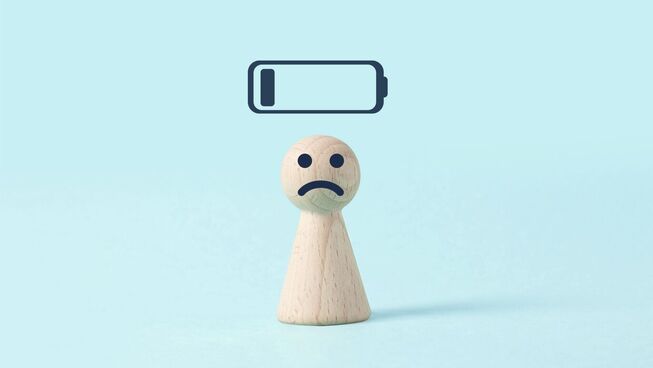
As I (Bec) write this piece I am sitting by a pool in Thailand. It’s the perfect spot to think about my social battery and what’s been depleting it lately.
“Social battery” is a term bandied about more and more these days. Think about it as the amount of energy you have available to handle situations where you are interacting with others. This could be a social situation with people you know, or at a work function where you may or may not know them.
Both situations require energy from you to engage. The level of energy may fluctuate based on a number of factors: how well you know the people, is this the first event in a string of events or the last; the size of the group, who is carrying the conversation, how much others are contributing.
Another factor has to do with your level of introversion or extroversion. That has an impact on the size of your social battery to begin with. It will also impact how fast it drains, how it can be re-charged (by either being with people or being alone) and how quickly it can be recharged.
As I sit by a pool in Thailand, what’s been depleting my social battery of late is this:
- Not being strong with my boundaries. I find that when work stress is high, my desire to engage socially with friends and family starts to wane. Social engagement takes energy, which because of the demands of work I just don’t have. Life becomes wrong side up because I actually don’t believe my work should be more important than time with friends and family.
- Having a too-high sense of responsibility. There have been some situations in work where decisions haven’t been made and deadlines have been missed. I find myself stepping in to take the lead to fix things, so that things do get done/don’t take 3 times longer than they otherwise would. This is something else I need to work on: taking a step back and letting other people figure things out.
As I (Caro) write this, I am just about to head off on 10 weeks long service leave. As I wrap things up and do a final trawl through my emails, I noticed this one: Where is all your energy going?
Therapist Kathleen Smith writes:
What’s the one area of life where you waste the most energy? Many people would say social media, but I have a different suggestion for you: your relationships.
How much mental and emotional energy do you spend on these behaviors?
- Wondering whether someone likes you.
- Wondering whether you’re annoying someone.
- Detecting potential upsetness in others.
- Assuming you know what people think or need.
- Trying to be the kind of person others want you to be.
- Worrying about others’ reactions.
- Trying to get approval, attention, or agreement from others.
- Trying to get other people to behave better.
I find this helpful because if we are talking about what drains our social battery, then we really don’t want to be wasting energy.
Kathleen’s solution:
Try thinking about where your energy is going. Try shifting your energy away from mind-reading or managing others, and towards how you want to manage yourself.
Like Bec, my social battery gets depleted by being overly-responsible for others. Or to use Kathleen’s terms, I waste energy mind-reading or managing others.
Working this out has been a game-changer for me. In the past, I used holidays for major social battery resuscitation. But it wasn’t a sustainable way to live, and I got tired of living that way. I had to work out how to manage my social energy more efficiently and effectively in the ordinariness of life, where most of life is spent. I found that more regular but shallower dips in my social battery is easier to recharge than crash and burn/holiday recovery.
In the end what’s helped me be less overly-responsible for people is quite simple: realising I’m no-one’s saviour. That might sound like I have a bit of God-complex, but when I try to manage - essentially control - others around me, using those behaviours Kathleen identified above, I’ve assumed the role of saviour.
As a follower of Jesus, I believe the role of Saviour is already taken - by Jesus himself. While I might be able to “save” someone and help them to behave better, Jesus can “Save” someone from an eternal death [Hebrews 2:14-15]. That’s a vastly different playing field! If I can trust that Jesus is my Saviour in the things that really matter, then I can trust he will look after me in the small, ordinary things of life. Leaning into him takes the focus away from leaning into others in order to manage them.
Speaking of factors outside the dynamic of relationships that depletes our social battery, Bec mentioned work stress. Mine is isolation. When I don’t have enough meaningful connections with people - or just spend too much time on my own - my social battery is worn down. A psychologist friend told me that “isolation breeds isolation”. So when I spend time on my own, I get comfortable with it, and want to spend more time on my own. Eventually there is a tipping point and I realise I need to make the effort to make more meaningful connections.
How do I (Bec) recharge my social battery? I spend time doing things that re-energise me. Sounds simple but that’s not just spending time alone. I can’t just read a book or have a nap, and watching Netflix on the couch doesn’t do it either. I’ve worked out that I need to have a certain level of activity.
I find ocean swimming with others re-energising. I’m being active and I’m with others, but we can’t talk under water so there’s some downtime there. Being in nature, getting fresh air and vitamin D helps me feel “alive”.
Knowing the impact of this particular activity on me and how busy my work and personal life can be, I build this into my weekly routine. I carve out time one morning a week to swim. There we each battle our own thoughts, and collectively discover sea lice and have great ocean adventures.
Questions
Can you relate to the concept of a social battery?
Do you feel your values sometimes are counter-intuitive to your social battery health?
Do you find you have an overwhelming urge sometimes to just get away from everything and everyone? Do you find you feel alive and more energised when you do?
What changes could you make so your social battery doesn’t get quite so depleted in the ordinary course of life?



